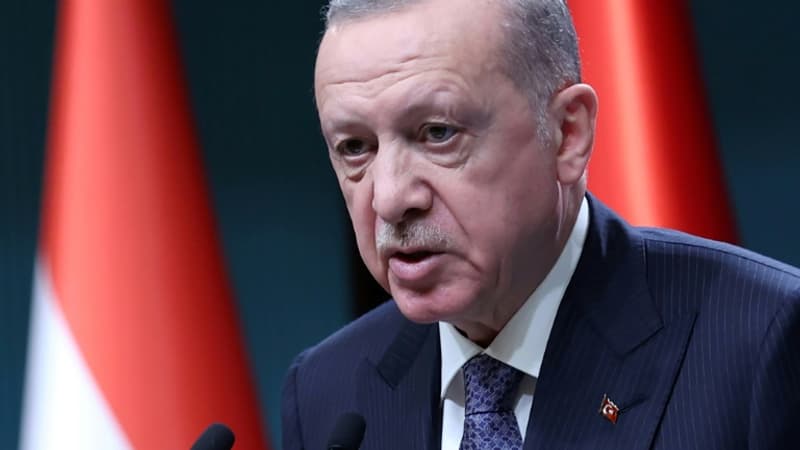Turkish President Recep Tayyip Erdogan on Saturday proposed a referendum on a constitutional change to guarantee the right to wear a veil in public administration, schools and universities during a televised intervention.
“If you have the courage, come on, let’s put this to a referendum (…) Let the nation make the decision,” launched the Turkish head of state, addressing the leader of the main opposition party, Kemal Kilicdaroglu, who originally proposed a law. to guarantee the right to wear the veil.
The debate over wearing the veil has recently heated up in Turkey ahead of presidential and parliamentary elections scheduled for 2023.
Restrictions lifted in 2013
With a Muslim majority, but having enshrined secularism in its constitution, Turkey was for a long time a country where the use of the veil was prohibited in public service, schools and universities, as well as in certain places such as the parliament or the Army premises.
Headscarf restrictions were lifted in 2013 by the government of Recep Tayyip Erdogan. Unlike in the 1990s, when the issue sparked lively debate, no political movement today is proposing its ban in Turkey.
“We have made mistakes in the past about the veil (…) It is time to leave this question behind and stop being on the lips of politicians”, even the leader of the main opposition party, CHP, launched in early October (Republican People’s Party), Kemal Kilicdaroglu.
According to observers, Kemal Kilicdaroglu would have wanted to show conservative voters – who traditionally vote for the AKP, Recep Tayyip Erdogan’s party – that they had nothing to fear in the event of a change in power.
“If it can’t be resolved in parliament, let’s present it to the people”
Faced with this attempt to recover the votes of the conservatives, Recep Tayyip Erdogan responded in early October by calling on his opponent to make a constitutional change on this issue.
“Is there discrimination against the veil or no veil today in public service? In schools? No. (…) We have achieved it,” Recep Tayyip Erdogan said on Saturday.
“Soon we will send the amendment to the constitution to parliament… But if it cannot be resolved in parliament, please submit it to the people,” he added.
Source: BFM TV


